Zhaoying Bian
A Peer-to-peer Federated Continual Learning Network for Improving CT Imaging from Multiple Institutions
Jun 03, 2023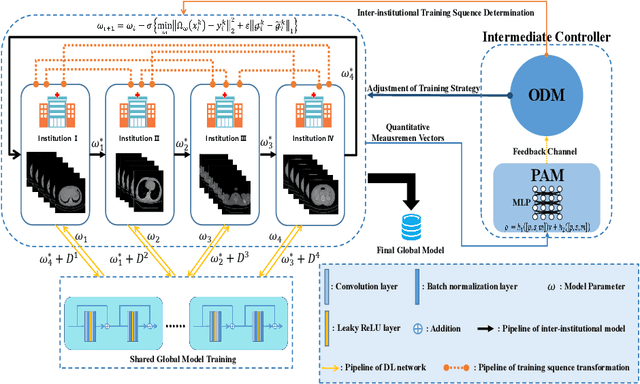

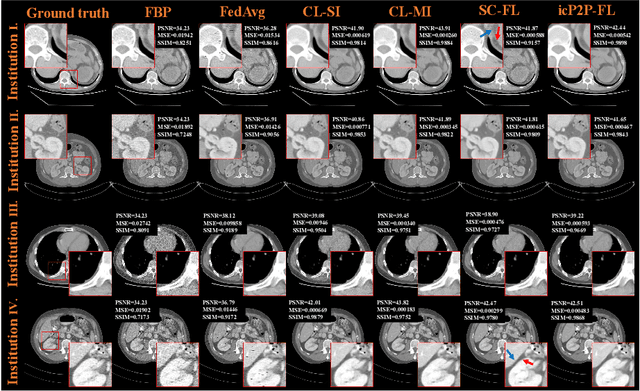
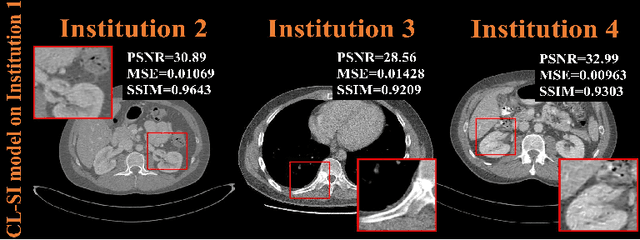
Abstract:Deep learning techniques have been widely used in computed tomography (CT) but require large data sets to train networks. Moreover, data sharing among multiple institutions is limited due to data privacy constraints, which hinders the development of high-performance DL-based CT imaging models from multi-institutional collaborations. Federated learning (FL) strategy is an alternative way to train the models without centralizing data from multi-institutions. In this work, we propose a novel peer-to-peer federated continual learning strategy to improve low-dose CT imaging performance from multiple institutions. The newly proposed method is called peer-to-peer continual FL with intermediate controllers, i.e., icP2P-FL. Specifically, different from the conventional FL model, the proposed icP2P-FL does not require a central server that coordinates training information for a global model. In the proposed icP2P-FL method, the peer-to-peer federated continual learning is introduced wherein the DL-based model is continually trained one client after another via model transferring and inter institutional parameter sharing due to the common characteristics of CT data among the clients. Furthermore, an intermediate controller is developed to make the overall training more flexible. Numerous experiments were conducted on the AAPM low-dose CT Grand Challenge dataset and local datasets, and the experimental results showed that the proposed icP2P-FL method outperforms the other comparative methods both qualitatively and quantitatively, and reaches an accuracy similar to a model trained with pooling data from all the institutions.
Direct Energy-resolving CT Imaging via Energy-integrating CT images using a Unified Generative Adversarial Network
Oct 14, 2019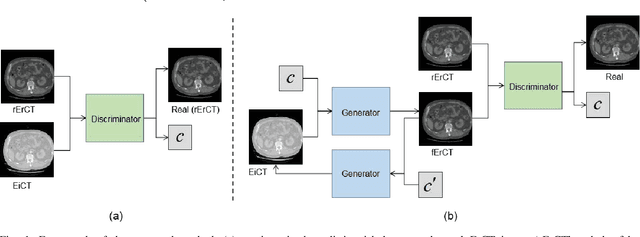
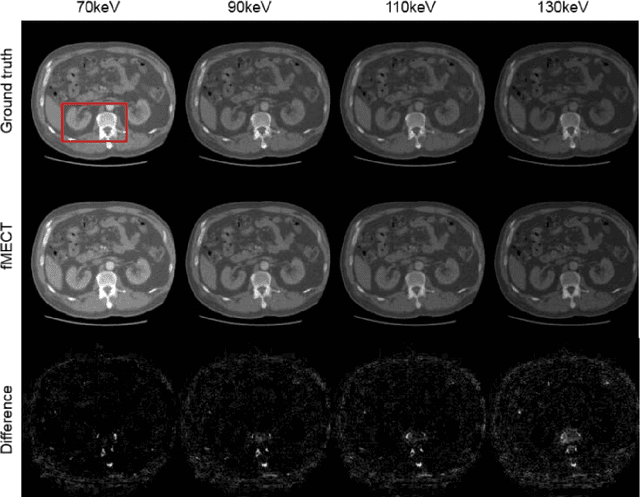

Abstract:Energy-resolving computed tomography (ErCT) has the ability to acquire energy-dependent measurements simultaneously and quantitative material information with improved contrast-to-noise ratio. Meanwhile, ErCT imaging system is usually equipped with an advanced photon counting detector, which is expensive and technically complex. Therefore, clinical ErCT scanners are not yet commercially available, and they are in various stage of completion. This makes the researchers less accessible to the ErCT images. In this work, we investigate to produce ErCT images directly from existing energy-integrating CT (EiCT) images via deep neural network. Specifically, different from other networks that produce ErCT images at one specific energy, this model employs a unified generative adversarial network (uGAN) to concurrently train EiCT datasets and ErCT datasets with different energies and then performs image-to-image translation from existing EiCT images to multiple ErCT image outputs at various energy bins. In this study, the present uGAN generates ErCT images at 70keV, 90keV, 110keV, and 130keV simultaneously from EiCT images at140kVp. We evaluate the present uGAN model on a set of over 1380 CT image slices and show that the present uGAN model can produce promising ErCT estimation results compared with the ground truth qualitatively and quantitatively.
 Add to Chrome
Add to Chrome Add to Firefox
Add to Firefox Add to Edge
Add to Edge